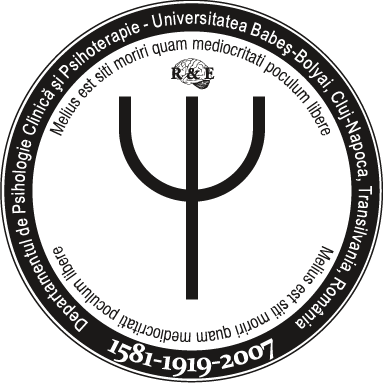The Platform for Advanced Imaging – MRI/EEG – in Clinical Cognitive Sciences – The SkyRa Platform
The central element of the platform is represented by a 3 Tesla Siemens Skyra MRI, the only one in Romania. Its main characteristics are:
- A 3 Tesla (3T) magnetic field;
- Large circumference (Open Bore) of 70 cm;
- A 32 channel head coil, one of the most advanced available head coils;
- Other coils: an 18 channel body coil; a 20 channel head/neck coil; a 32 channel spinal coil; a small flexible coil; a big flexible coil;
- Performant field gradients (XQ, developing 45 mT/m@ 200 T/m/s);
- The MRI is equipped with a TIM system (allows the combination of multiple coils into the same acquisition, the antennas being compatible with the parallel acquisition);
- Allows for all the imagistic applications available for a standard 3T scanner (angiography, cardiology, abdominal, perfusion and diffusion tensor imaging, nervous tract visualization, functional imaging, diffusion, spectroscopy and dynamic breast imaging);
- LCD portable screen that is compatible with the magnetic field needed for fMRI studies, with a diagonal of 32’ and a resolution of 1920×1080;
- Heart rate and pulse monitoring and recording system, active during the imagistic acquisitions and compatible with the magnetic field;
- Includes all the basic sequences and all the protocols necessary for conducting neuroimagistic research (EPI sequences for diffusion, perfusion, fMRI), along with several optional packages for advanced research, like proton spectroscopy (both Single Voxel and Chemical Shift) or arterial spin labeling (ASL 2D; an innovative technique that uses the water in the arterial blood as an endogenous agent for a non-invasive perfusion evaluation);
- The system also incorporates a post-processing station (syngo MR Workplace), equipped with a comprehensive package for the processing and visualizing of fMRI BOLD images – syngo BOLD 3D evaluation, capable of combining the results of BOLD images that are still in the process of acquisition and 3D anatomical images in real time, within the acquisition station;
- The system is connected to and synchronized with a stimulation system, NNL Basic fMRI, necessary for the implementation of experimental paradigms in the neuroimagistic research (patients can be examined while they execute a variety of tasks). The stimulation system includes a stimulus presentation module (equipped with a presentation software), alongside a response and feedback module, that can record the patient’s responses.
- A PACS server for saving and secure accessing of MRI and fMRI data, alongside two performant stations utilized for post-processing, analyzing and interpreting the MRI and fMRI data.
Apart from the MRI system, the platform also includes an EEG EMS Pegasus/Phoenix (http://www.emsbiomed.com/) EEG system, with 32 channels, capable of recording and analyzing event potentials. The EEG system can be synchronized with the usual stimulus presentation programs; audio and photo-stimulation systems are integrated.
These infrastructures are successfully used in several laboratories, with interdisciplinary activities centred on the main research directions of the Institute.
The Sleep Disorders and Circadian Psychobiology Research Laboratory
Coordinator: Bogdan Voinescu, Ph.D. – Associate Researcher
The laboratory is affiliated to The European Sleep Research Society and encompasses four Somnowatch actigraphs, two of which have an integrated EEG system.
The Human Mind and Complexity Research Laboratory
Coordinator: Robert Balazsi, Ph.D.
The laboratory tackles complex and various subjects related to clinical and cognitive psychology, cognitive development and education, research and behavioral data analysis methods, physiology and neuroimaging or behavior and complex cognitive processes modeling. At the moment, the laboratory is working on a project concerning the testing effect applications in the educational field. The project is conducted in collaboration with The Department of Cognitive Science, Budapest University of Technology and Economics.
The Clinical Magnetic Resonance Imaging (MRI) Research Laboratory
coordinator: Prof. univ. dr. Anca Dobrean; responsible: Researcher Ruben E. Nechifor, Ph.D.
The laboratory monitors, through advanced clinical MRI techniques, the effectiveness of (1) contrast agents and (2) medication proposed as solutions to various pathologies and psychopathologies. Also, comparative studies of the sensitivity of 3T clinical MRI systems are being carried out for the purpose of the accuracy of the early diagnosis of various pathologies.
The Advanced Magnetic Resonance Imaging (MRI) Technologies Laboratory
coordinator: Prof. univ. dr. Anca Dobrean; responsible: Researcher Ruben E. Nechifor, Ph.D.
The laboratory contributes to the development of new software products used by clinical MRI scanners (1) to increase image resolutions of images obtained using the same hardware facilities but in a more productive way and (2) to increase patient comfort by reducing acquisition times, respectively (3) for expanding their applicability and (4) for reducing human invasiveness.
These activities are carried out in partnership with the manufacturer of clinical MRI scanners (Siemens) using the dedicated platform (IDEA) or open source platforms (e.g. PulSeq).
Methods of access, conditions of use, and hours of operation
The platform is accessible to researchers from UBB, or other universities in the country and abroad, following the approval of a written request addressed to the Director of the Institute (ancadobrean@psychology.ro).
The request must specify the purpose of the request (e.g. research, educational, clinical services, information/community), the level of occupancy of the Platform, the period in which they will be carried out and a description of the activities in which the Platform is intended to be involved.
Hours of operation are Monday through Friday from 8 a.m. to 4 p.m. but are adjusted according to existing requests.
